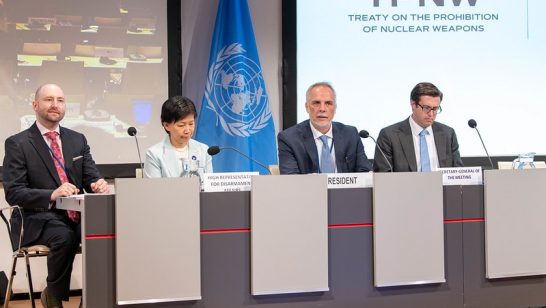Dr Michal Onderco is a Professor of International Relations at Erasmus University Rotterdam and an affiliate at Peace Research Center Prague. He studies international security, focusing on nuclear politics and the domestic politics of foreign policy. He authored Networked Nonproliferation (Stanford UP, 2021) and Iran’s Nuclear Program and the Global South (Palgrave, 2016), as well as papers which appeared in International Studies Quarterly, European Union Politics, Journal of Common Market Studies, Contemporary Security Policy, European Journal of Political Research, Cooperation & Conflict, The Nonproliferation Review (and elsewhere). In 2018-2019, he was a Junior Faculty Fellow at Stanford University’s Center for International Security and Cooperation.
Michal Onderco
Professor of International Relations at Erasmus University Rotterdam
Content by Michal Onderco

What does global military AI governance need?
In the absence of globally acknowledged governance frameworks for AI in the military domain, two new initiatives came into existence in 2023 – the Responsible Artificial Intelligence in the Military Domain (REAIM) and the US-initiated Political Declaration. Mahmoud Javadi and Michal Onderco analyse both, writing that REAIM provides a much-needed space for a democratic, depoliticised, and decentralised approach to global military AI governance.

The supporters of the ban treaty are not a monolith. Don’t treat them as such
Analysing the discussions at the First Meeting of the States Parties of the TPNW last month, Michal Onderco and Valerio Vignoli find that there are real divisions among ban treaty members. As delegates to the RevCon begin their deliberations in New York this week, they will benefit from understanding that there is enough common ground to build coalitions with nuclear ban supporters.
